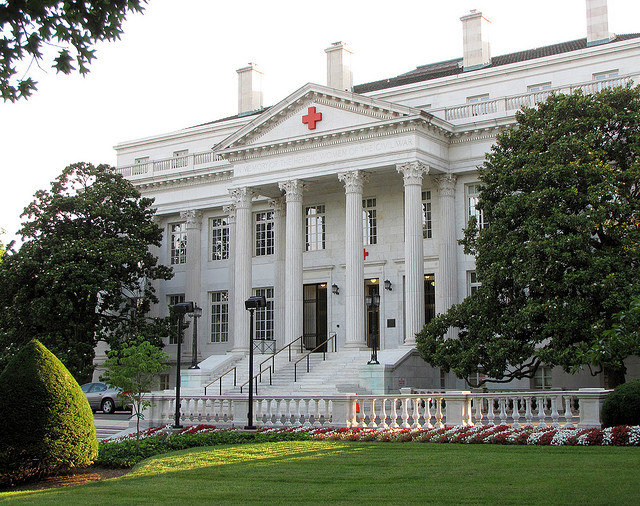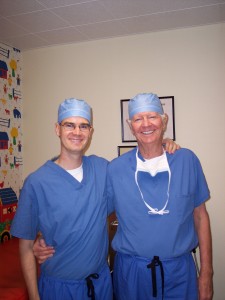Editor’s Note: This is another installment in our “Single and…” series where we will interview singles from all walks of life. It is our hope that you are encouraged by the stories of people who have a similar journey as you, who share the same dreams you have, who face the same hurdles you do, and who can remind you that you are not alone.
Illness, death, hospitals, suffering, exhaustion, hardship—most of us are on a mission to avoid those things whenever possible. But chaplains have a specific ministry to show up in the midst of a difficult situation and to share the love and peace of Christ.

Jeff Pate was born and raised in Louisiana. After college, he traveled the globe as a missionary, and after grad school, his heart to return home and a calling to work in church planting took him to New Orleans in his home state. In the process, God surprised him with the vocation of hospital chaplain. He now works bi-vocationally between the hospital and his parish.
We caught up with Jeff to ask him what it is like to minister to others during such trying times. Here’s what he had to say:
Could you tell us a little bit about your journey to become a chaplain? How did the Lord lead you to where you are today?
Jeff: On one hand, finding a career as a chaplain was practically motivated. I moved down to New Orleans with a vision to work with a multiethnic-multiracial church plant, which the Lord eventually led me to, and I needed a job. I heard about Clinical Pastoral Education (CPE), professional training for chaplaincy, and that it was helpful training for ministry. New Orleans had a center for CPE, so at the encouragement of my dad, I contacted them. One thing led to another and after working as a volunteer CPE student I was invited on as a resident, a stipend CPE position. Now here I am 4 years later working as a certified staff chaplain.
On another level, the call to chaplaincy goes back to my upbringing. I was raised in a medical family—talks around the dinner table, Dad taking calls from patients in the evening or middle of the night, meeting his patients as we walked through the mall, spending time in his office and eventually working there, going to the hospital with him and eventually working there. I felt comfortable in hospitals. I learned to pastor from doctors and nurses. It’s an honor now to get to pastor them.
So the calling intersected with my initial calling to work in church planting, my upbringing, and it resonated with me on a spiritual gifts level. Mercy ranks pretty high when I take spiritual gifts inventories, and I love to care for caregivers. Also, I studied family studies in undergrad. So, to care for patients, staff, and families in a healthcare setting as a pastor is like a dream come true!

Do you think your singleness makes your calling more or less complicated?
Jeff: If one of the reasons why I’m still single is because, at times, I isolate myself, then that complicates my calling. Anything that would hinder a fuller expression of love hinders me, to some degree, in my calling.
And my singleness helps my calling. Just a few months ago a group from SingleRoots was in town and we enjoyed a meal out. I shared with one friend how I didn’t think I could continue to give of myself to the same degree in the areas God had called me if I were married. My time, rightly, would need to be redirected. As one who devotes a large portion of working hours to “ministry” I heartedly agree with St. Paul’s advice in 1 Corinthians 7:31-34: my interests are not as divided. Not to mention, coming home to a quiet house can be nice.
Your ministry can be emotionally difficult. What are some safeguards you have in place for ensuring it doesn’t become overwhelming for you?
Jeff: Yeah, chaplaincy definitely puts you in emotionally difficult situations, and that can be true for anyone in healthcare. I hear it on the voices and see it in the frames of the staff everyday. I found that in CPE, my supervisors, and chaplain colleagues did an excellent job of preparing me to manage my own anxiety in anxious situations.
Listening to music is cathartic for me. Also, creatively connecting my life in the hospital with my life outside it so I’m not so compartmentalized is too. For example, pulling from experiences by the bedside to inform a sermon or having a friend from church play music for a service I lead at the hospital. Recently I’ve been collaborating to develop our church’s Diaconate ministry. It’s been a joy to see how my gifts and experiences from hospital, home, and parish inform each other.
I get a lot of love and energy from the patients and staff of the hospital. I love them and I experience God’s love from them everyday, so my work becomes self-sustaining. Also, I have a few good friends who open their home to me when I need to talk, and I journal a lot. The primary place for renewal is, as Luke 10:38-42 teaches, at His feet. My time with Jesus is “the good part, which won’t be taken away from me.” Isn’t it amazing that of all Jesus could point to as important, the one thing he says won’t be taken away from Mary is having sat at His feet.
Being a chaplain is different than a traditional ministry role in a church staff setting. In which ways do you prefer it, and in which ways is it more difficult?
Jeff: I have a personal preference for it simply because I always wanted to work in the marketplace, I just wasn’t sure how that would happen. Pastorally, I consider it a privilege to work beyond the walls of the church, to work alongside even some of my church parishioners. I love being with the people.
And it can be difficult. Jesus makes truth claims that are universal. Take John 14:6 for example. Living faithfully to the particularities of faith in a diverse milieu institutionally and professionally has been a growing edge. I experience first hand the secularizing of religion in the West. It keeps me on my toes and often on my knees.
What has been your greatest joy so far as a chaplain?
Jeff: Joy! Seriously…joy! Experiencing joy has been the greatest joy! I find so much joy in caring for the people at the hospital. I love the staff. I really care deeply for them, and it’s a joy to pastor them. And the people I see are so very thankful to have a pastor come see them.
Another joy has been seeing that there is something stronger than death. Ministering at bedsides during times of transition I see His kingdom break through. I get to hear stories of miracles, hear visions of Christ’s appearance, watch the dying faithful take their last breath bravely awaiting His face. Jesus knew what he was doing when he told us to visit the sick (Matthew 25:36). This work is a gift, and in a surprising reversal of roles, I find myself being healed in the process.
If you know someone who is single and in ministry, would you email them Jeff’s interview to encourage them?
Photo credit: Victoria Pickering